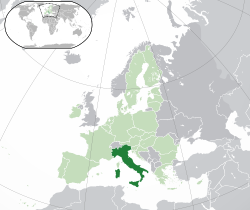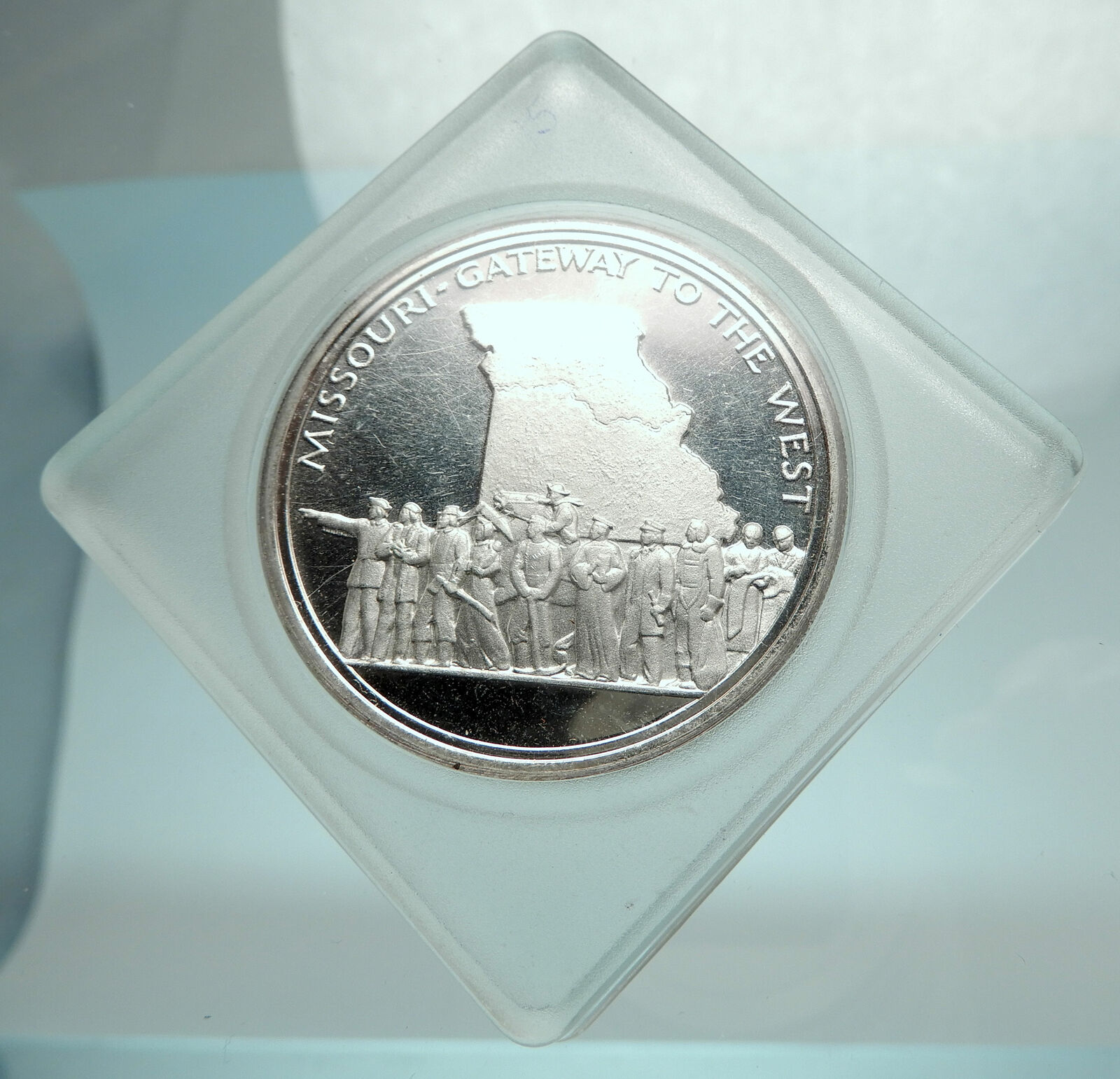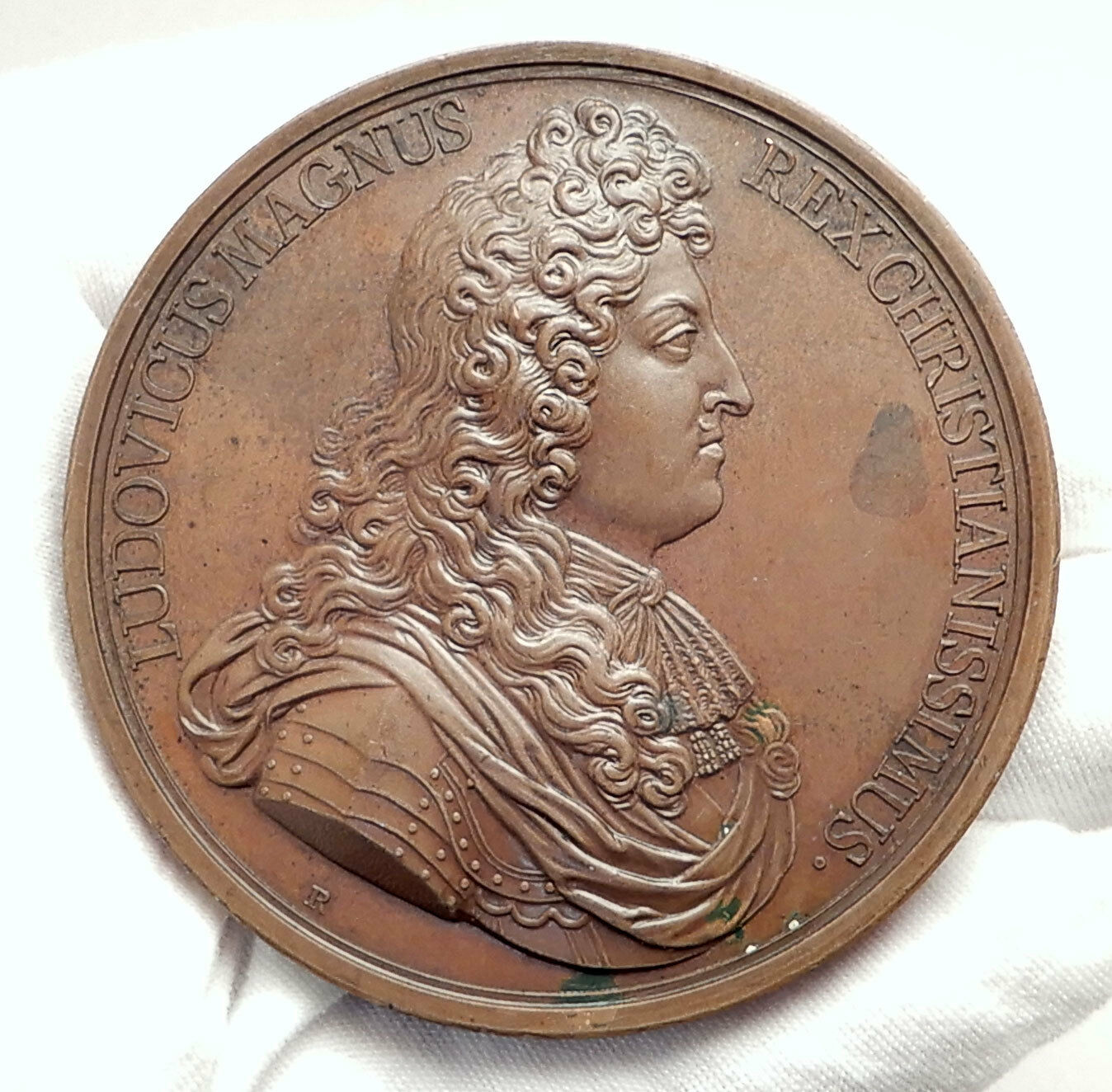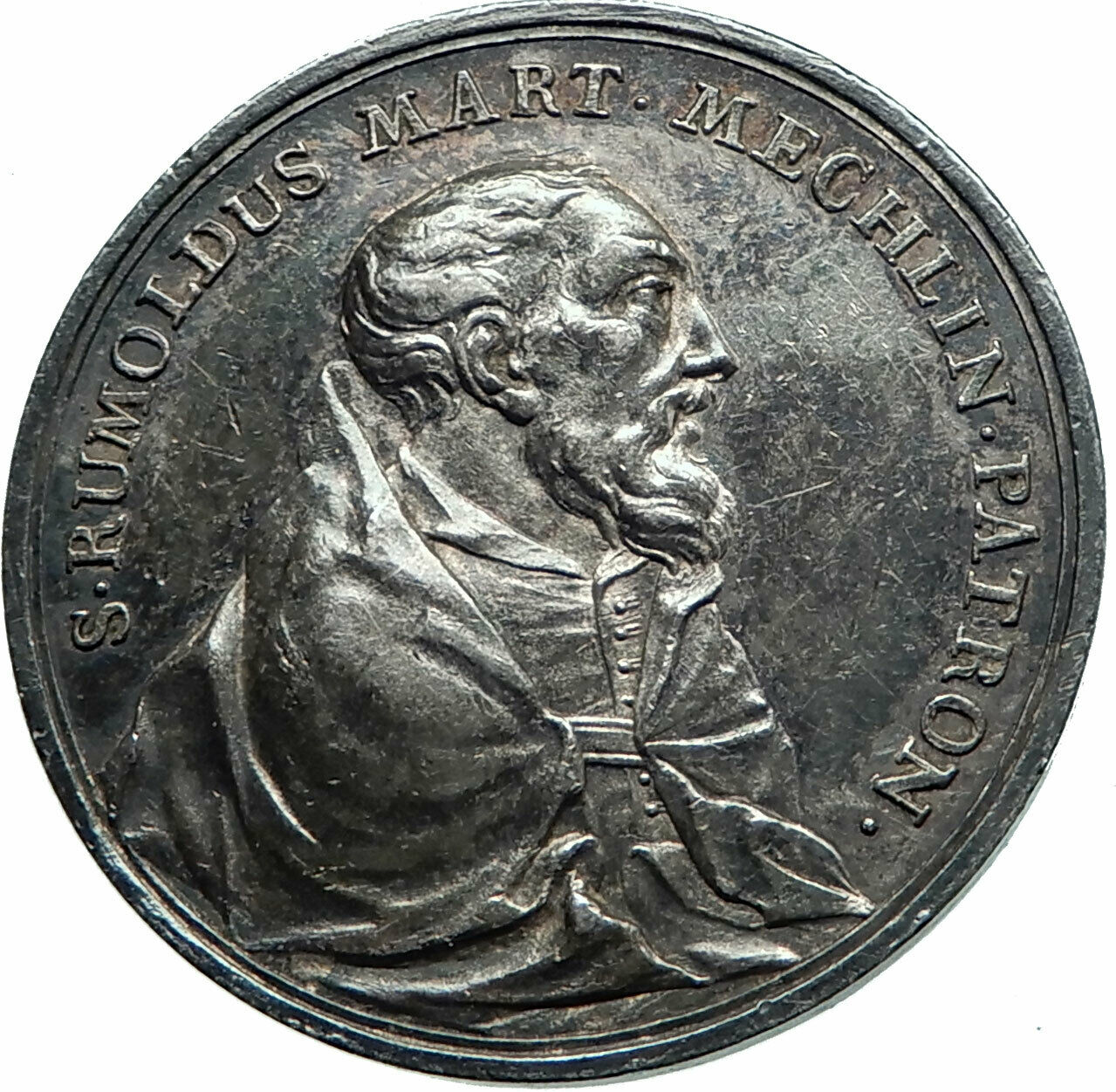|
Italy – Gaspare Spontini: Opera Composer
1829 Bronze 51mm (90.05 grams)
SPONTINIO EOUITI CLARO PRIMO MUSICI AGONIS SUI DIRECTORI HAL. SAXON. D. X SPET. MDCCCXXIX G LOOS DER., Spontini facing 3/4 left.
LYRICAE THAGORDIAE PRINCIPI GERMANIA MERITORUM CULTRIX. VESTALIS CORTES OLYMPIA NURMAHAL ALCIDOR AGNES STAUE MILTON CET., Wreath.
You are bidding on the exact item pictured, provided with a Certificate of Authenticity and Lifetime Guarantee of Authenticity.

Gaspare Luigi Pacifico Spontini (14 November 1774 – 24 January 1851) was an Italian opera composer and conductor.
Born in Maiolati, Papal State (now Maiolati Spontini, Province of Ancona), he spent most of his career in Paris and Berlin, but returned to his place of birth at the end of his life. During the first two decades of the 19th century, Spontini was an important figure in French opera. In his more than twenty operas, Spontini strove to adapt Gluck’s classical tragédie lyrique to the contemporary taste for melodrama, for grander spectacle (in Fernand Cortez for example), for enriched orchestral timbre, and for melodic invention allied to idiomatic expressiveness of words.
As a youth, Spontini studied at the Conservatorio della Pietà de’ Turchini, one of four active music conservatories of Naples. Working his way from Italian city to city, he got his first break in Rome, with his successful comedy Li puntigli delle donne (Carnival 1793). In 1803, he went to Paris, where, on 11 February 1804, debuted his comic opera La finta filosofa, his Neapolitan success of 1799. In part on the recommendation of the comte de Rémusat and his literary countess, a dame du palais, Spontini circulated in the Imperial court, was made a member of the Académie Impériale de Musique and gained a court position as compositeur particulier de la chambre of the Empress in 1805.
Though Spontini’s earlier successes were comedies, with the encouragement of Empress Joséphine in 1807, Spontini wrote his greatest success, the tragédie lyrique La vestale, which has remained his best known work. Its premiere at the Opéra in Paris established Spontini as one of the greatest Italian composers of his age. His contemporaries Cherubini and Meyerbeer considered it a masterpiece, and later composers such as Berlioz and Wagner admired it.
During the Peninsular War, Napoleon promoted works such as Gasparo Spontini’s Fernand Cortez (1809), which concerned the Spanish conquest of Mexico under the reign of Charles V. In 1811, Spontini married Celeste Érard, the niece of the Parisian maker of pianos and harps Sébastien Érard; it was a happy marriage, though childless. He was made a chevalier of Napoleon’s Legion of Honor; its Maltese cross hangs round his neck in the portrait by Nicolas-Eustache Maurin (illustration).
Under the changed political climate of the Bourbon Restoration, Spontini, closely identified with the former Empire, saw his opera Olimpie (1819, revised 1821, 1826) meet with indifference, leading him to leave Paris for Berlin, where his operas had already achieved success. There he became Kapellmeister and chief conductor at the Königliches Opernhaus, and in this period he composed the Prussian National Anthem “Borussia”. There he also met the young Mendelssohn, but deprecated the 17-year old’s opera Die Hochzeit des Camacho.
In 1842, a disillusioned Spontini, chagrined at the success of Giacomo Meyerbeer and others in Germany, returned to Italy, where he died in 1851.
Bibliography (French) Gaspare Spontini by Patrick Barbier, bleu nuit éditeur, 2017, 176 p. (ISBN 978-2-3588-4067-5)
Compositions
For the opera
- Li puntigli delle donne (1796)
- L’eroismo ridicolo [scores] (1798)
- La fuga in maschera (1800)
- Le metamorfosi di Pasquale (1802)
- Milton (1804)
- Julie, ou Le pot de fleurs (1805)
- La vestale (1807)
- Fernand Cortez (1809)
- Olimpie (1819)
- Nurmahal, oder das Rosenfest von Caschmir (1822)
- Agnes von Hohenstaufen (1829)
Other compositions
- L’eccelsa gara – Cantata, on a text by Luigi Balocchi (1806)
- Tout le monde a tort – Vaudeville (1806)
- Bacchanale des Danaïdes [scores], for Antonio Salieri’s Les Danaïdes (1817)
- Borussia [de] – Prussian anthem, on a text by Johann Friedrich Leopold Duncker [de] (1818)
- Tout deuil [scores] (1820)
- Lalla Rûkh – Festspiel, on a text by S. H. Spicker, after Thomas Moore (1821)
Modern revivals
During the 20th century, Spontini’s operas were only rarely performed, although several had their first revivals in years. Perhaps the most famous modern production was the revival of La vestale with Maria Callas at La Scala at the opening of the 1954 season, to mark the 180th anniversary of the composer’s birth. The stage director was famed cinema director Luchino Visconti. That production was also the La Scala debut of tenor Franco Corelli. Callas recorded the arias “Tu che invoco” and “O Nume tutelar” from La vestale in 1955 (as did Rosa Ponselle in 1926). In 1969, conductor Fernando Previtali revived the opera, with soprano Leyla Gencer and baritone Renato Bruson. (An unofficial recording is in circulation.) In 1993, conductor Riccardo Muti recorded it in the original French language with Karen Huffstodt, Denyce Graves, Anthony Michaels-Moore and Dimitri Kavrakos.
Other revivals of Spontini include Agnes von Hohenstaufen in Italian as Agnese di Hohenstaufen at the Maggio Musicale festival in Florence in 1954, starring Franco Corelli and conducted by Vittorio Gui, and in Rome in 1970, with Montserrat Caballé and Antonietta Stella, conducted by Riccardo Muti, both recorded live. Fernand Cortez was revived in 1951, with a young Renata Tebaldi, at the San Carlo in Naples, conducted by Gabriele Santini. The premiere of the integral version of the work took place at the Erfurt (Germany) opera house (2006, Jean-Paul Penin, conductor).
Li puntigli delle donne was performed at the Putbus Festival 1998, conducted by Wilhelm Keitel (recording Arte Nova 74321591982).
  Italy, officially the Italian Republic (Italian: Repubblica Italiana), is a unitary parliamentary republic in Europe. Italy covers an area of 301,338 km2 (116,347 sq mi) and has a largely temperate climate; due to its shape, it is often referred to in Italy as lo Stivale (the Boot). With 61 million inhabitants, it is the 4th most populous EU member state. Located in the heart of the Mediterranean Sea, Italy shares open land borders with France, Switzerland, Austria, Slovenia, San Marino and Vatican City. Italy, officially the Italian Republic (Italian: Repubblica Italiana), is a unitary parliamentary republic in Europe. Italy covers an area of 301,338 km2 (116,347 sq mi) and has a largely temperate climate; due to its shape, it is often referred to in Italy as lo Stivale (the Boot). With 61 million inhabitants, it is the 4th most populous EU member state. Located in the heart of the Mediterranean Sea, Italy shares open land borders with France, Switzerland, Austria, Slovenia, San Marino and Vatican City.
 Since ancient times, Greek, Etruscan, Celtic, and other cultures have thrived on the Italian Peninsula. Rome ultimately emerged as the dominant power, conquering much of the ancient world and becoming the leading cultural, political, and religious centre of Western civilisation. During the Dark Ages, the region suffered sociopolitical collapse amid calamitous barbarian invasions, but by the 11th century, numerous Italian city-states rose to great prosperity through shipping, commerce and banking, and even laid the groundwork for capitalism. The Renaissance led to a flourishing of Italian culture, producing famous scholars, artists, and polymaths such as Leonardo da Vinci, Galileo, Michelangelo and Machiavelli. Italian explorers such as Marco Polo, Christopher Columbus, Amerigo Vespucci, and Giovanni da Verrazzano discovered new routes to the Far East and the New World, helping to usher in the European Age of Discovery. Nevertheless, Italy remained politically fragmented and fell prey to European powers such as France, Spain, and later Austria, subsequently entering a long period of decline that lasted until the mid-19th century. Since ancient times, Greek, Etruscan, Celtic, and other cultures have thrived on the Italian Peninsula. Rome ultimately emerged as the dominant power, conquering much of the ancient world and becoming the leading cultural, political, and religious centre of Western civilisation. During the Dark Ages, the region suffered sociopolitical collapse amid calamitous barbarian invasions, but by the 11th century, numerous Italian city-states rose to great prosperity through shipping, commerce and banking, and even laid the groundwork for capitalism. The Renaissance led to a flourishing of Italian culture, producing famous scholars, artists, and polymaths such as Leonardo da Vinci, Galileo, Michelangelo and Machiavelli. Italian explorers such as Marco Polo, Christopher Columbus, Amerigo Vespucci, and Giovanni da Verrazzano discovered new routes to the Far East and the New World, helping to usher in the European Age of Discovery. Nevertheless, Italy remained politically fragmented and fell prey to European powers such as France, Spain, and later Austria, subsequently entering a long period of decline that lasted until the mid-19th century.
After various unsuccessful attempts, the second and the third wars for Italian independence resulted in the eventual unification of most of present-day Italy by 1866. From the late 19th century to the early 20th century, the new Kingdom of Italy rapidly industrialised and acquired a colonial empire, becoming a great power. However, southern and rural areas of the country remained largely excluded from industrialisation, fuelling a large and influential diaspora. Despite being one of the main victors in World War I, Italy entered a period of economic crisis and social turmoil, leading the way to the rise of a Fascist dictatorship in 1922. The subsequent participation in World War II on the Axis side ended in military defeat, economic destruction and civil war. In the years that followed, Italy abolished the monarchy, reinstated democracy, and enjoyed a prolonged economic boom, thus becoming one of the world’s most developed nations.
Italy has the third largest economy in the Eurozone and the eighth largest economy in the world. It has a very high level of human development and enjoys the highest life expectancy in the EU. Italy plays a prominent role in global military, cultural and diplomatic affairs and is also considered to be a major regional power in Europe. Italy is a founding and leading member of the European Union and the member of numerous international institutions, including the UN, NATO, the OECD, the OSCE, the WTO, the G7/G8, G20, the Union for the Mediterranean, the Council of Europe, Uniting for Consensus, and many more. As a reflection of its vast cultural wealth, Italy is home to 51 World Heritage Sites, the most in the world, and is one of the most visited countries.
|







 Italy, officially the Italian Republic (Italian: Repubblica Italiana), is a unitary parliamentary republic in Europe. Italy covers an area of 301,338 km2 (116,347 sq mi) and has a largely temperate climate; due to its shape, it is often referred to in Italy as lo Stivale (the Boot). With 61 million inhabitants, it is the 4th most populous EU member state. Located in the heart of the Mediterranean Sea, Italy shares open land borders with France, Switzerland, Austria, Slovenia, San Marino and Vatican City.
Italy, officially the Italian Republic (Italian: Repubblica Italiana), is a unitary parliamentary republic in Europe. Italy covers an area of 301,338 km2 (116,347 sq mi) and has a largely temperate climate; due to its shape, it is often referred to in Italy as lo Stivale (the Boot). With 61 million inhabitants, it is the 4th most populous EU member state. Located in the heart of the Mediterranean Sea, Italy shares open land borders with France, Switzerland, Austria, Slovenia, San Marino and Vatican City. Since ancient times, Greek, Etruscan, Celtic, and other cultures have thrived on the Italian Peninsula. Rome ultimately emerged as the dominant power, conquering much of the ancient world and becoming the leading cultural, political, and religious centre of Western civilisation. During the Dark Ages, the region suffered sociopolitical collapse amid calamitous barbarian invasions, but by the 11th century, numerous Italian city-states rose to great prosperity through shipping, commerce and banking, and even laid the groundwork for capitalism. The Renaissance led to a flourishing of Italian culture, producing famous scholars, artists, and polymaths such as Leonardo da Vinci, Galileo, Michelangelo and Machiavelli. Italian explorers such as Marco Polo, Christopher Columbus, Amerigo Vespucci, and Giovanni da Verrazzano discovered new routes to the Far East and the New World, helping to usher in the European Age of Discovery. Nevertheless, Italy remained politically fragmented and fell prey to European powers such as France, Spain, and later Austria, subsequently entering a long period of decline that lasted until the mid-19th century.
Since ancient times, Greek, Etruscan, Celtic, and other cultures have thrived on the Italian Peninsula. Rome ultimately emerged as the dominant power, conquering much of the ancient world and becoming the leading cultural, political, and religious centre of Western civilisation. During the Dark Ages, the region suffered sociopolitical collapse amid calamitous barbarian invasions, but by the 11th century, numerous Italian city-states rose to great prosperity through shipping, commerce and banking, and even laid the groundwork for capitalism. The Renaissance led to a flourishing of Italian culture, producing famous scholars, artists, and polymaths such as Leonardo da Vinci, Galileo, Michelangelo and Machiavelli. Italian explorers such as Marco Polo, Christopher Columbus, Amerigo Vespucci, and Giovanni da Verrazzano discovered new routes to the Far East and the New World, helping to usher in the European Age of Discovery. Nevertheless, Italy remained politically fragmented and fell prey to European powers such as France, Spain, and later Austria, subsequently entering a long period of decline that lasted until the mid-19th century.




